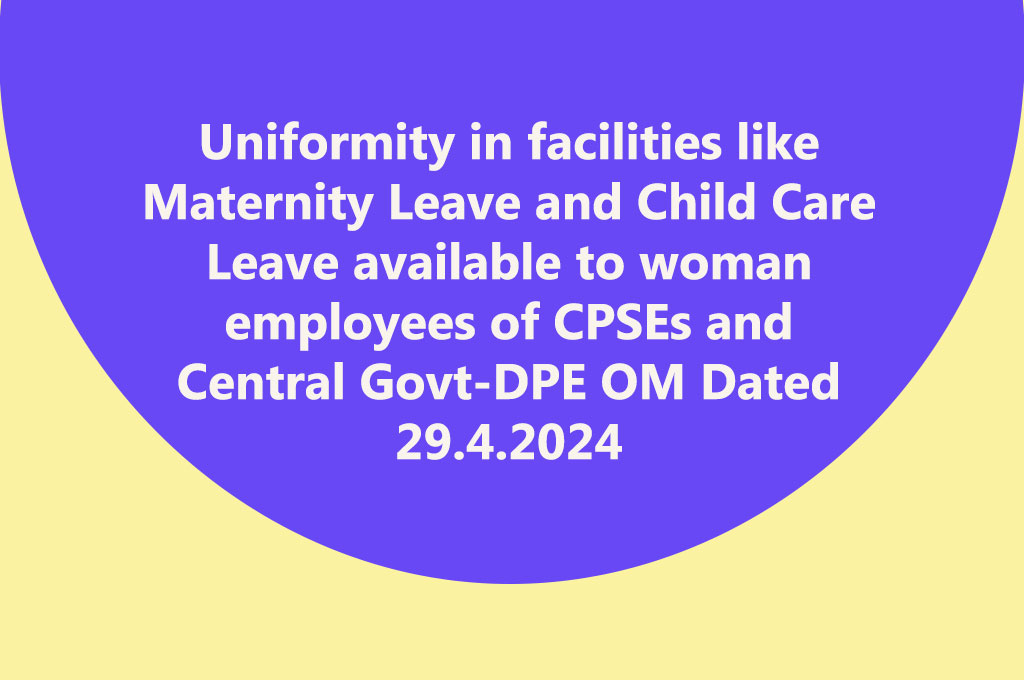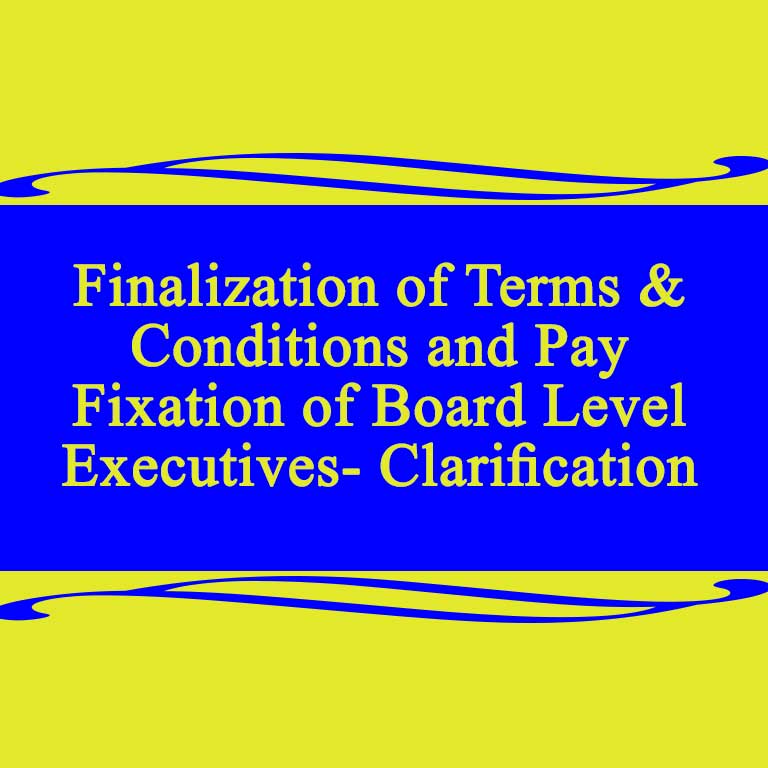Department of Public Enterprises has issued Guidelines on Counselling, Retraining & Redeployment (CRR) Scheme (2019-20)
- Objective
1.1 The objective and scope of the Counselling, Retraining and Redeployment Scheme (CRR) is to provide opportunities of self / wage employment to the employees or dependants of Central Public Sector Enterprises (CPSEs) rendered surplus as a result of modernization, technology upgradation and manpower restructuring in the PSEs. The aim of retraining is to reorient them through short duration training programmes to enable them to adjust to the new environment and adopt new avocations after their separation from the PSEs due to VRS/VSS or retrenchment due to closure / restructuring of the enterprise. While it will not be possible to commit that the employees so restructured or retrenched would be provided with alternative employment, yet it should be desirable to reorient such employees so that they may engage themselves in income generating activities.
1.2 The counselling and training programmes will accordingly be planned in order to equip them with skills and orientation to engage themselves in self-employment/wage employment activities and rejoin the productive process even after their separation from the CPSEs. Redeployment of separated employees in gainful activities implies that they have been brought into the mainstream of economy. This also implies that they are contributing to national income. - Background
2.1 Government had setup a National Renewal Fund (NRF) in February, 1992 as a safety net for workers affected by re-structuring arising out of the new industrial policy. The objective was to provide funds, where necessary, for continuation of employees affected by restructuring or closure of industrial units both in the public and private sector and to provide funds for employment generation schemes both in the organized and unorganized sectors to provide social safety net. Counselling, Retraining and Redeployment of rationalized employees formed a part of NRF, which had been meeting expenses towards voluntary retirement of CPSE employees as also for rehabilitation of employees of the organized sector consisting of CPSEs, State PSEs and private sector.
2.2 The Voluntary Retirement Scheme (VRS) for employees of central PSEs was revised in May, 2000. With the revision of VRS Scheme, the NRF being administered by the Department of Industrial Policy & Promotion ceased to exist and the activities of counselling,retraining and redeployment provided to separated employees from CPSEs and the organized sector under NRF converged under the Scheme of Counselling, Retraining and Redeployment (CRR) for the rationalized employees of Central Public Sector Enterprises under implementation by Department of Public Enterprises (DPE) since 2001-02. - Salient Features of the Scheme
3.1 The three main elements of the CRR Scheme and the eligibility criteria are as follows:-
3.2 Counselling: Counselling is the basic pre-requisite of the rehabilitation programme of the separated employees. The separated employee needs psychological counselling to absorb the trauma of loss of assured livelihood and to face the new challenges both for himself and for the members of his family who may continue to depend upon him. He /she particularly needs support to plan his compensation amount and other financial benefits he receives from the CPSE due to his separation, so that his limited funds are managed prudently and not wasted on immediate consumption or non-productive expenditure. Thirdly, he needs to be made aware of the new environment of market opportunities so that he may, depending upon his aptitude and expertise, take up economic activities and continue to be in the production process.
3.3 Retraining: The objective of such training is to help the separated employees for rehabilitation. The trainees will be helped to acquire necessary skills/expertise/orientation to start new avocations and re-enter the productive process after loss of their jobs. These training programmes will be short duration programmes according to the trade or activity as decided.
3.4 Redeployment: It will be the endeavor to redeploy such rationalized employees in the production process through the counselling and retraining efforts. At the end of the programme, VRS/VSS optees/dependents should be able to engage themselves in alternate vocations of self/wage employment. Although there cannot be any guarantee that the separated employee will be assured of alternate employment, yet possible help from the identified nodal training agencies as well as from the CPSEs concerned would be extended to them for starting new avocations.
3.5 Eligibility: In order to be eligible to be included in the Scheme, the VRS optee should be below 58 years of age, if he/she wants training himself/ herself. If VRS Optee does not want to come forward for training, the benefit of the Scheme could be extended to the dependent of VRS Optee and one person per family of a VRS optee could also be considered in lieu of VRS Optee having age of upto 60 years. However, VRS optees would be given priority over the family members. Following eligibility criteria will apply for including the dependents of VRS optees under CRR Scheme:
- Minimum age – 18 years.
- Maximum age – 45 years (in case wife of VRS Optee is a dependent, there would be no age bar)
- Only one dependant, that too who is unemployed, will be considered from each family. [Note: In case of deceased VRS Optee (upto 60 years of age), his/her dependent, if not earlier undergone training under CRR Scheme, will be considered for the benefit of the Scheme.]
4. Implementation of the CRR Scheme
4.1 National Skill Development Corporation (NSDC) under the aegis of Ministry of Skill Development & Entrepreneurship (MSDE) will be entrusted with the task of quality and market oriented skill development training under the CRR Scheme through their empanelled Training Partners. NSDC will support to facilitate a proper matching of individual skills, aptitude of the typical target group and help in augmenting redeployability under the CRR Scheme.Training as per National Occupation Standard (NOS)/ Qualification Pack(QP)
5.1 National Occupational Standards (NOS) specify the standard of performance,knowledge and understanding when carrying out a particular activity in the workplace. Each NOS defines one key function in a job role. Qualification Pack (QP) is a set of NOSs, aligned to a job role available for every job in each industry sector. These drive both the creation of curriculum, and assessments. Sector Skill Councils are responsible for the creation of QPs and NOSs.
5.2 NSDC, being a facilitator, shall ensure that all training programs identified are as per Qualification Pack (QP)/National Occupation Standard (NOS) standards set forth by the Sector Skill Councils (SSC) resulting in certification as per SSC certification standards.
Follow us on YouTube Channel, Telegram Channel, Twitter & Facebook and WhatsApp Channel for all Latest News and Updates




